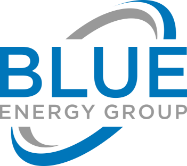Blue Energy Group and Walker Reid Strategies will be merging. Communications will represent both companies during the transition. Read the official announcement
UPDATES
The Senate GOP’s draft legislation, which passed today, introduces sweeping changes to key clean energy and efficiency tax provisions. The bill advances a narrower credit landscape, accelerates phase-outs, and imposes stringent foreign sourcing restrictions, particularly on projects using wind or solar.
**Termination Trigger: The significant event that has to get done before the deadline, i.e. begin construction, complete construction, etc.
- Section 48 (Investment Tax Credit, Legacy ITC)
- Key Change: 2% category eliminated with no bonus increases allowed. Fuel cell property shifted to Section 48E.
- Termination Trigger: N/A
- Effective Date: June 16, 2025+ (varies by clause)
- Section 48E (Clean Electricity Investment Credit)
- Key Change: Section 70513 disallows the credit for wind or solar facilities placed in service after Dec. 31, 2027. Energy storage remains eligible. Facilities with “material assistance” from prohibited foreign entities are disqualified.
- Termination Trigger: Placed in service
- Effective Date: December 31, 2027
- Section 45L (New Energy Efficient Home Credit)
- Key Change: Early sunset moved up to June 30, 2026 (from December 2032).
- Termination Trigger: Lease or sold by
- Effective Date: June 30, 2026
- 179D (Energy-Efficient Commercial Buildings)
- Key Change: Disallowed for projects beginning construction after June 30, 2026
- Termination Trigger: Beginning of construction
- Effective Date: June 30, 2026
- 30C (Alt. Fuel Vehicle Refueling Property Credit)
- Key change: Eligibility ends for property placed in service after June 30, 2026.
- Termination Trigger: Placed in Service
- Effective Date: June 30, 2026
IMPACT
- Wind & Solar Developers: Must place projects in service before 2028 to remain eligible for 48E.
- Builders & Designers: The early sunset of 45L and 179D compresses incentive windows for residential and commercial projects.
- EV Infrastructure Providers: Charging station rollouts must accelerate to qualify under 30C before mid-2026.
- Domestic Supply Chains: Compliance with material sourcing rules is essential to preserve credit eligibility—no fines, but loss of credit is the penalty.
GUIDANCE
(Provided by David Diaz, Managing Partner at Walker Reid, and Josh Howes, CEO of Blue Energy Group)
Clients and partners should stay alert as this bill goes back to the House for approval. Many of the clean energy incentives are clearly at risk.
If your team is planning projects that depend on the 179D deduction, 45L credit, the ITC, or any of the affected provisions, we strongly recommend evaluating construction start timing, eligibility documentation, and financing strategies now.
There is still time to contact your congressional representatives to make your voice heard. Whether you support preserving 179D deductions, maintaining long-term certainty, or expanding access to other energy tax incentives, direct input from constituents can still shape the outcome of this bill.
Walker Reid and Blue Energy will continue to advocate for clear, stable, and actionable guidance in the energy tax space. We are closely engaged with stakeholders and will provide real-time updates as this legislation progresses.
We will continue monitoring the situation closely and keep you updated as it develops. If you need help understanding how this may impact your projects, contact us to discuss.
